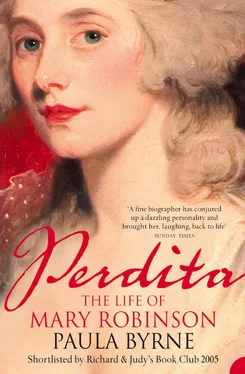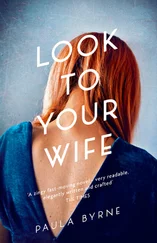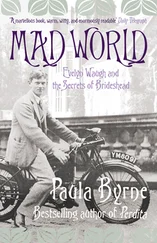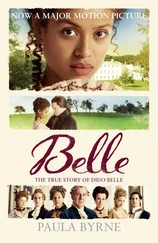Five days after playing Jacintha for the first time, Mary took on another breeches role, Fidelia in Isaac Bickerstaffe’s reworking of William Wycherley’s comedy The Plain Dealer – the part is in the tradition of Shakespeare’s Viola, in which a young woman follows her beloved to sea dressed in man’s clothes. But it is a darker play than Twelfth Night : in Wycherley’s original Fidelia is almost raped on stage. 28 From this point on in Mary’s career both on stage and in society, it is hard to avoid the subject of sex. Breeches roles were tremendously popular – they afforded male audiences their only public glimpse of the shape of a woman’s leg – but they reinforced the old prejudice that women who disported themselves on stage were little better than prostitutes. Actresses were required to lead exemplary lives if they stood a chance of earning respectability, and very few did, exposed as they were to the temptations of the rich patrons who frequented the theatres looking for mistresses. One commentator compared the stage to the window of a toyshop through which actresses could be seen and purchased. 29 Actresses in the 1780s were seen as no different in kind, but only in degree, from the more obviously sexually available performers of the brothel. ‘Drury Lane Ague’ was slang for syphilis, ‘Drury Lane Vestal’ for a whore, ‘Covent Garden Abbess’ for a madam. Drury Lane and Covent Garden were in close physical proximity to bagnios and brothels; prostitutes sold their services in and around the theatre buildings.
Actresses were thrilling to look at, glamorous and mysterious. Because they were on public display, they broke all the conduct-book rules about feminine modesty. Periodically there were outcries against the immorality of the stage, and it was the actresses who usually bore the brunt of the the press’s opprobrium. In private, too, even those who were closely connected to the theatre had their doubts. Sheridan forbade his wife to perform in public once they were married, earning the approbation of Dr Johnson. When his wife’s sister Mary Linley was offered a contract by Garrick, he wrote a letter to her brother that positively bursts with invective: were she to accept Garrick’s offer, she would become ‘the unblushing Object of a Licentious gaping croud’, the ‘Creature of a mercenary Manager, The Servant of the Town, and a licens’d Mark for Libertinism … a Topick for illiberal News-Paper Criticism and Scandal’. ‘It would be needless to add the circumstance of a Girl’s making a Shew of herself in Breeches.’ 30 He argued that no decent man ever married an actress and that nine out of every ten actresses ended up bitterly regretting going on the stage. He would rather see his sister-in-law dead than become an actress.
Furthermore, there was anxiety about actresses emulating aristocratic women so successfully that they could play the fine lady offstage as well as on it. Well-to-do women often sold their second-hand clothes to actresses. Actresses used their freedom in selecting their own apparel to associate themselves further with women of quality. By dressing fashionably both onstage and off, they reinforced the idea that there was little to separate them from their most established and wealthy patrons. Mary was careful to emphasize the continued patronage of the Duchess of Devonshire and the esteem in which she was held by several other ‘respectable and distinguished females’. The prominence of ladies of quality in the theatre world was another bane of anti-theatrical pamphleteers. Actresses would often speak Prologues and Epilogues that appealed to the generosity of ‘The Ladies’ for applause and approval. Actresses increasingly aligned themselves with aristocratic women to defend themselves against the less flattering comparisons suggested in scurrilous biographies and the ever more scandalous paragraphs in the newspapers and periodicals. As Mary insisted, ‘I had still the consolation of an unsullied name. I had the highest female patronage, a circle of the most respectable and partial friends.’ 31
Such patronage could not, however, shield her from family disapproval. When Mary’s elder brother John visited England from Tuscany, where he had become a respectable merchant, he was horrified by his sister’s choice of profession. She managed to persuade him to see her perform, but the moment he saw her entering the stage he ‘started from his seat in the stage-box, and instantly quitted the theatre’. Hester, meanwhile, heartily disliked the idea of her daughter being on stage and, although she would go to the theatre to see her perform, she did not hesitate to show ‘painful regret’. 32 Mary claims that fortunately her father remained abroad all this time, so never saw her act. But actually he came in and out of the country during these years. In 1779 he opened a subscription at the London Coffee House ‘for fitting out a stout privateer’. So it is not beyond the bounds of possibility that one night Nicholas Darby may have slipped into Drury Lane and seen his daughter under the lights.
In Mary’s 1796 novel, Angelina , the heroine’s despotic father (who is a merchant like Nicholas Darby) condemns female stage players: ‘my daughter an actress! why, I’d cut her legs off, if I thought she wished to disgrace herself by such an idea’. He would rather ‘see her dead, than making such a moppet of herself, as to run about like a vagrant, playacting’. Mary’s own attitude comes across when one of her female characters voices an impassioned defence of the profession as a serious and respectable art:
We have many females on the stage, who are ornaments to society, and in every respect worthy of imitation! For my part, I adore the Theatre, and think there is more morality to be found in one good tragedy, than in all the sermons that ever were printed. With regard to acting; it is an act which demands no small portion of intellectual acquirements! It polishes the manners; enlightens the understanding, gives a finish to external grace, and calls forth all the powers of mental superiority! 33
* Brereton died in 1787 after a year’s confinement in the Hoxton lunatic asylum. Later the same year Priscilla married another famous actor, John Philip Kemble (brother of Sarah Siddons).
* When first published, Mary’s Memoirs filled two volumes: in a suitably dramatic touch, the first volume ends at this point in her story, as ‘with trembling limbs, and fearful apprehension, I approached the audience’.
CHAPTER 7 A Woman in Demand
It has ever been a decided opinion in my mind, that the man who first seduces a woman from the paths of chastity is accessory to all the ills that may await her during the remaining hours of her existence.
Mary Robinson, Walsingham
Mary’s marriage had become a sham. Nevertheless, in the summer of 1779 she accompanied Tom to Tregunter once again. In all probability, he was seeking breathing space from his creditors and wanted to make another attempt to get money out of Harris.
Her reception at Tregunter House was much better than it had been the time when prison loomed: ‘Mrs Robinson, the promising young actress, was a very different personage from Mrs Robinson who had been overwhelmed with sorrows, and came to ask an asylum under the roof of vulgar ostentation.’ Elizabeth Robinson expressed her disapproval of Mary’s profession, but the ‘supposed immorality was … tolerated ’ as the labour was ‘deemed profitable ’. 1 The visit appeared to go well. Harris arranged parties and dinners to show her off. The well-to-do women of the locality treated her as ‘the very oracle of fashion’. After two weeks in Wales, she returned to London to prepare for the new season. On the way home, a pause at Bath exposed her to the solicitations of the dangerous duellist, George Brereton, prominent amongst her husband’s creditors. Tom had met him in the racing town of Newmarket some time before.
Читать дальше












